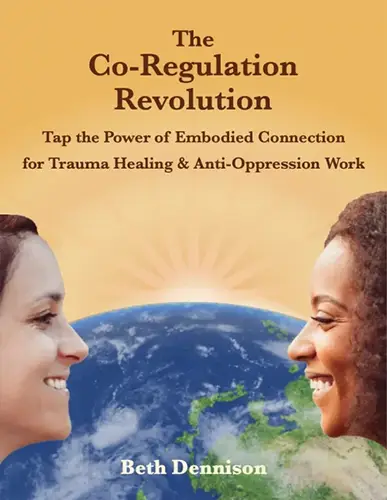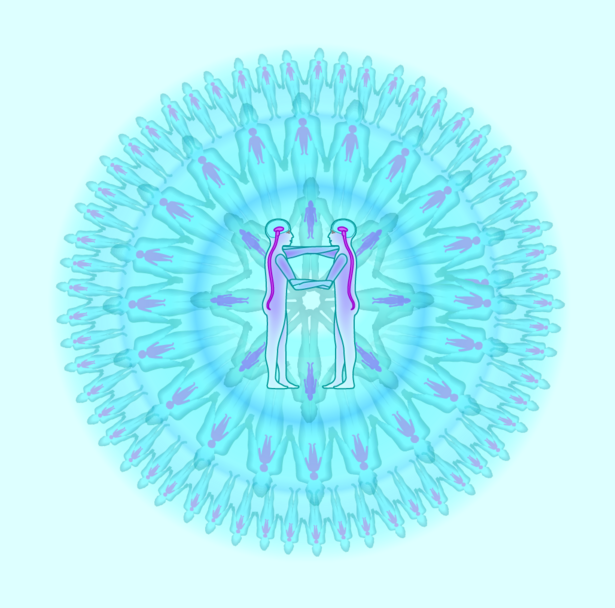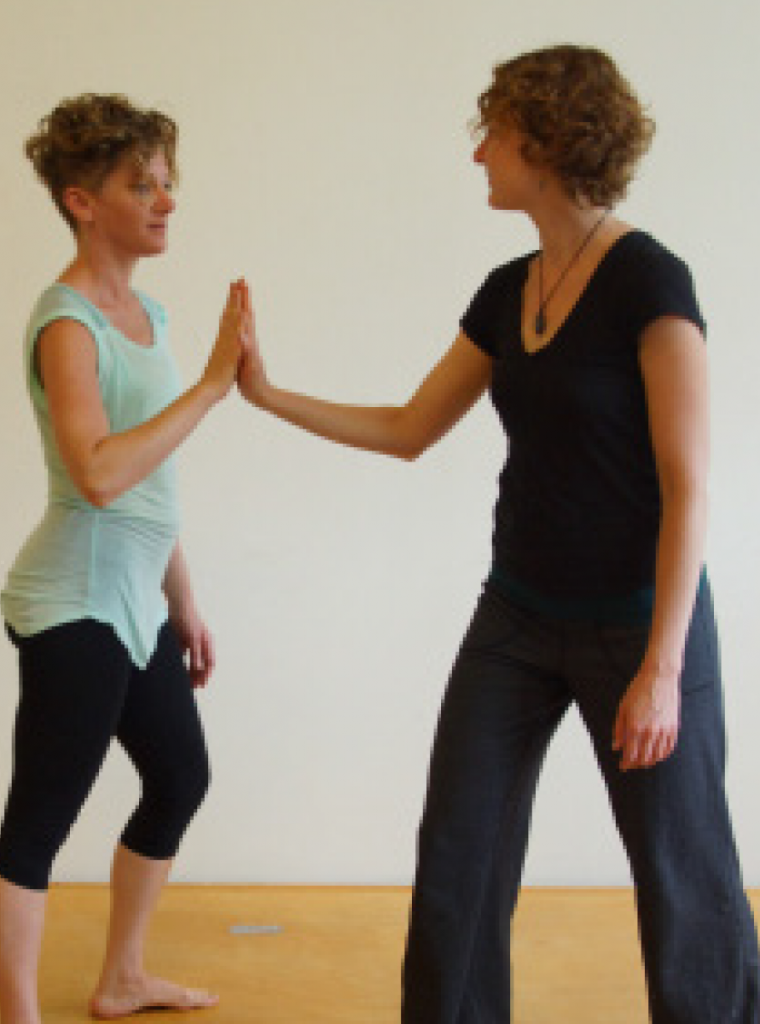Welcome to the Center for Body Up Co-Regulation (BCR). We offer training, classes, educational materials, and support to therapists, practitioners, teachers and others who want to teach and spread the practices of Body Up! Co-Regulation with their students, clients and communities.
We stand for liberation through building embodied, fair and collaborative relationships.

Body Up
This means starting with our physical, embodied experience. (Top down means starting with our mental experience.)
Co-Regulation
This means good for you and good for me, too. It means using our connecton with each other to shift emotional gears, or to hold steady in challenging situations. It is co-operative and two way. Together, we each regulate our own nervous system.
- BCR draws from interpersonal neurobiology, Somatic Experiencing, Bodynamics, and yoga.
- The practices are therapeutic, diagnostic, and regulatory.
- With BCR, we can down-regulate when we want to rest, sleep or dispel anxiety.
- With BCR, we can up-regulate when we want to wake up, get going, or get things done.
- With BCR, we can cultivate safe connection when we want clear communication and emotional engagement.
- Body Up! Co-Regulation online offers a remarkably effective way to create deep connection and potent opportunities for people to go to their emotional edges, get help and come back.
- BCR is effective both online and in person.

New Class Available!
Self Paced Online Course:
4 Skills for Embodiment Around Others
For an introductory video see
Beth Dennison’s interview with Mira Malcolm
or
Introduction to Co-Regulation.
Safe and Non-Judgemental

A New Dynamic

Next Level Skills

The Three Pillars of Body Up! Co-Regulation
Co-Regulation is our birthright. It is a biological imperative. You do not have to be an expert to start co-regulating, nervous system to nervous system, you already do it. Mothers and infants do it. Friends and lovers do it. Co-Regulation means shifting emotional gears in our nervous systems in connection with others. By definition, co-regulation means good for you and good for me, too.
Co-Regulation depends on expression, reflection, and response. Expression is about showing ourselves, our feelings, our vulnerability, our autonomic state. Showing who we are and how we feel is the essential first step in co-regulation.
Reflection from others is how we know we are seen. Being present is about seeing the other as they are. Verbal and non-verbal communication lets us know how we are seen and accepted. (The neurological elements of attunement are how we read each other non verbally: eye contact, tone of voice, posture, gesture, movement, rhythm, timing, intensity, words, rhythm, motion).
Responses let us know how our self expression affects our communication partner, friend, family member, etc. This is the red or green light for going deeper. To co-regulate, we each need to be able to recognize and to report on how we have been affected by the other. The distinction between reflecting and responding helps us avoid jumping to conclusions and believing our projections.
Four Skills for Embodiment Around Other People
Embodiment skills are fundamental to staying present, embodied and co-regulatory with others. They develop in relational space, with practice, in real time, online or in person.
1. Finding Internal Home Base in Our Core: A solid psychological sense of self is rooted in a solid physical sense of self.
2. Using Boundary Muscles in Relational Space: Feeling safe depends on having our physical boundary muscles available to protect ourselves.
3. Giving the Body a Voice in Relational Space: Who feels safe when nobody can speak up for them? This is about including body-up awareness in social space.
4. Tracking Self and Other in Real Time: If we can’t track self and other in real-time, it’s hard to feel connected, and impossible to co-regulate.
Think of embodiment as being alive in a body, and sensing that body. Our bodies give us access to our autonomic states, and to Body Up! Co-Regulation.
